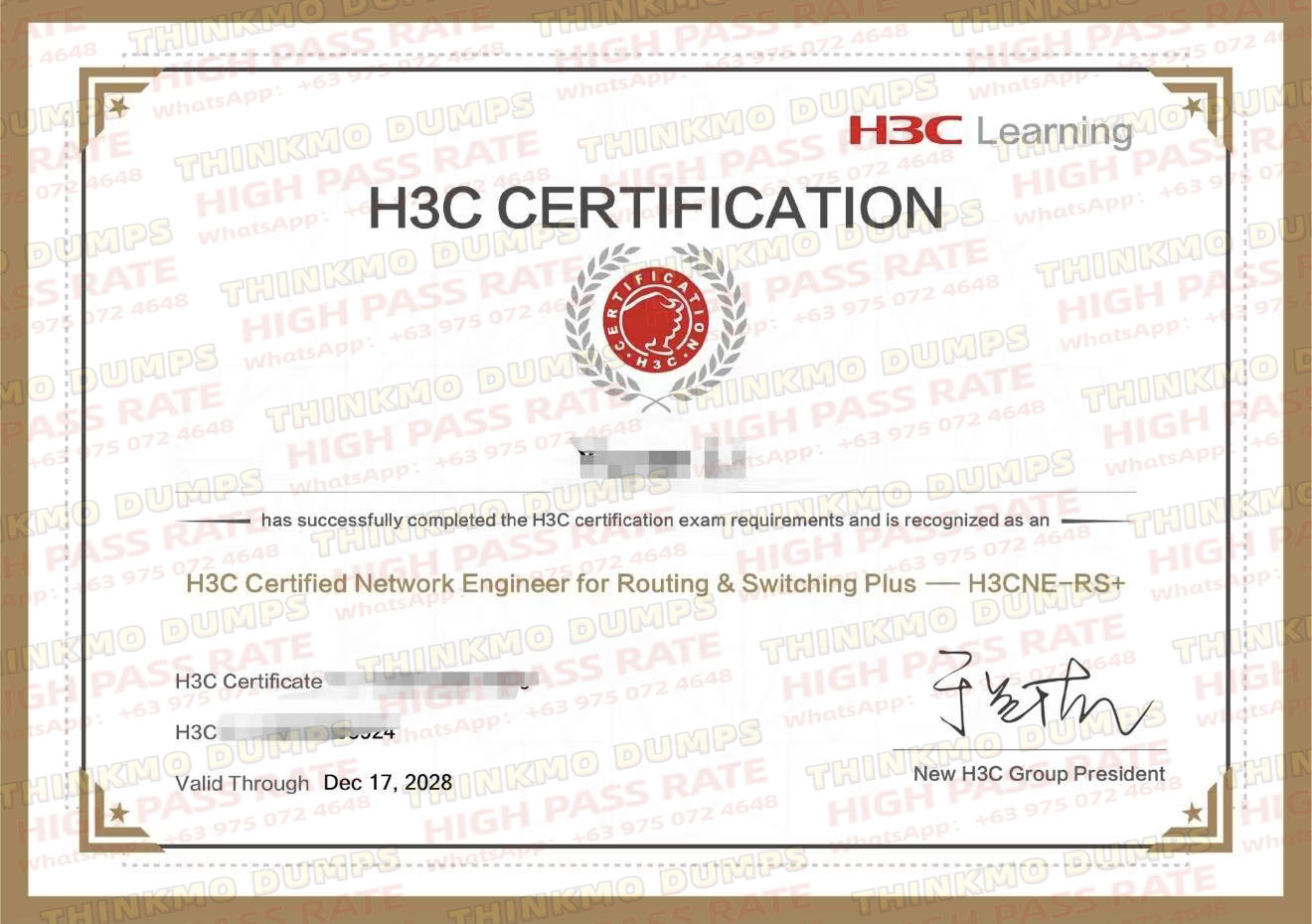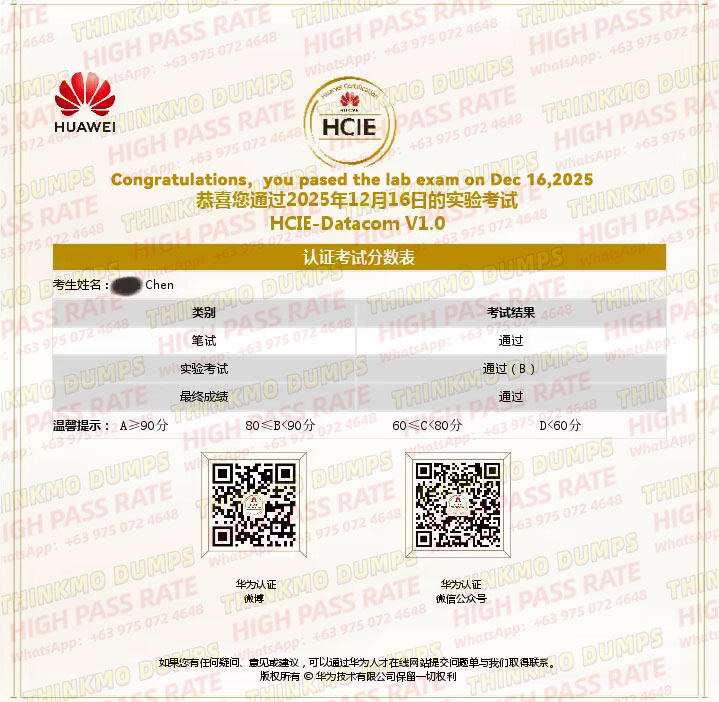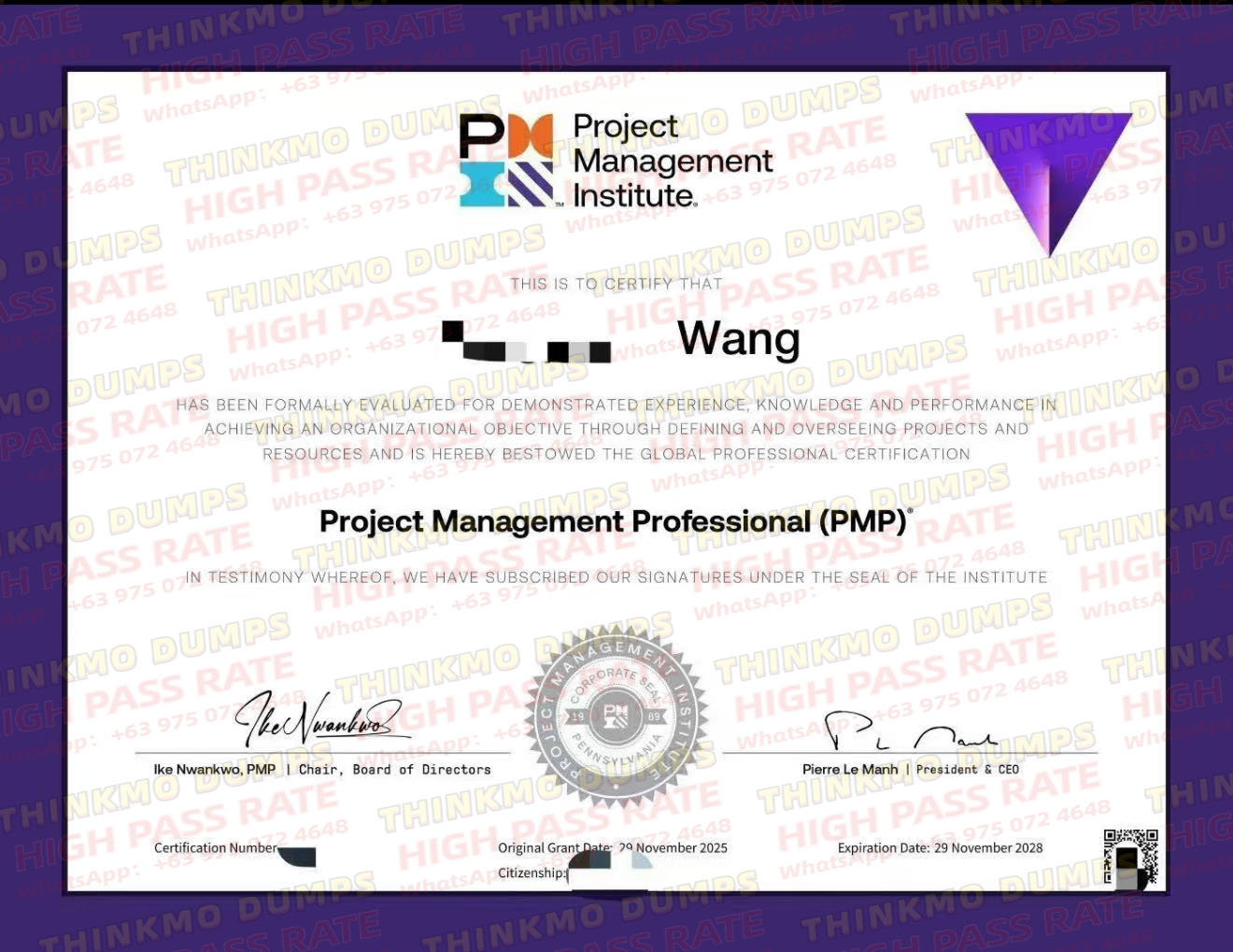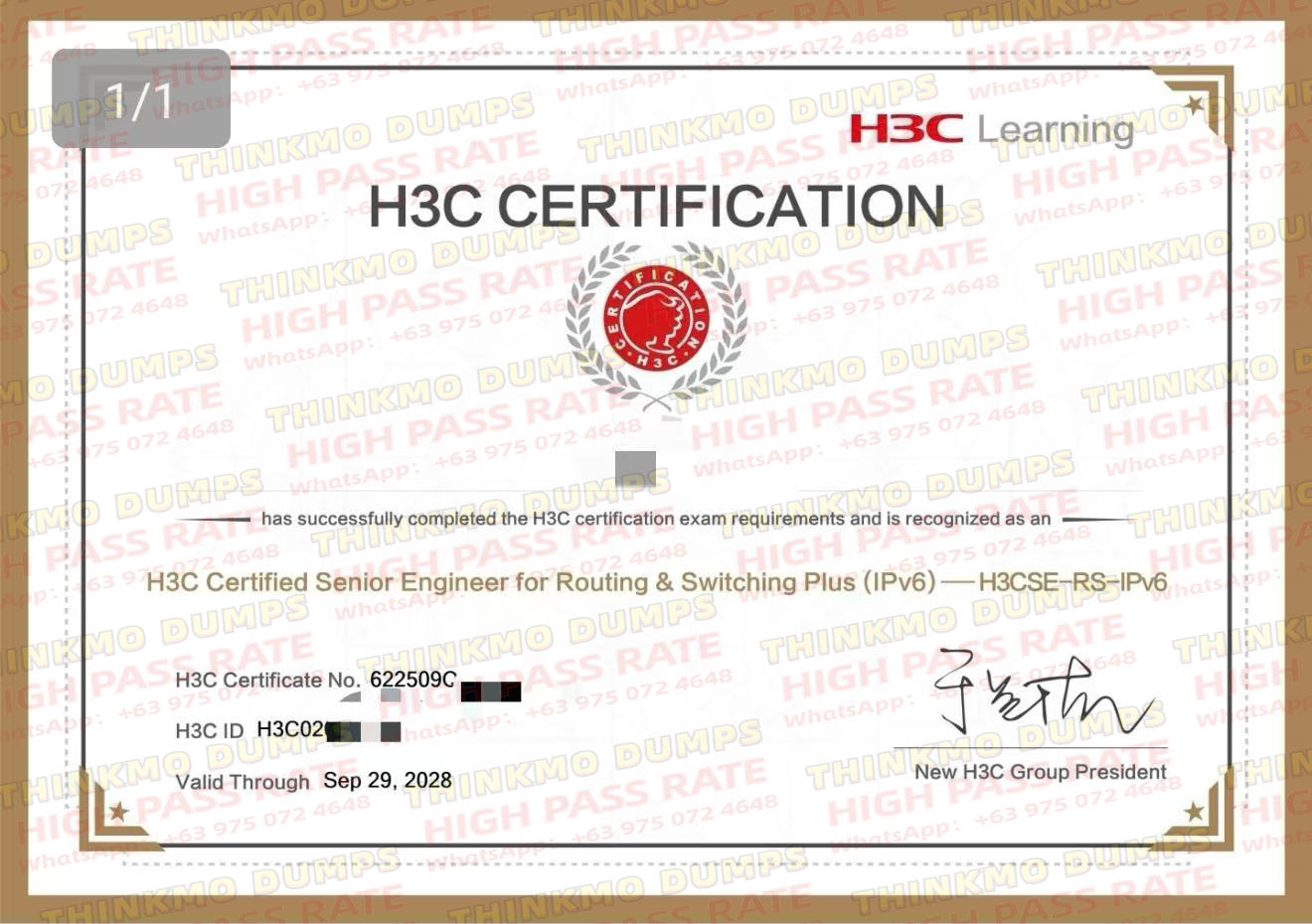How to Obtain the Huawei Euler HCIE Certificate?
Update time:2025-10-10
If you plan to specialize in the Huawei openEuler operating system, the openEuler HCIE (Huawei Certified ICT Expert — EulerOS) is the senior-level certification in that track. It targets experienced sysadmins and architects. Although it’s an advanced credential, you can prepare methodically and pass it — this article explains the exam structure, core content and a practical preparation plan.

Core fact: HCIE-Euler belongs to Huawei’s “OS & platform” certification family and follows the usual HCIA→HCIP→HCIE progression model. You must pass the written (qualification) exam before you are eligible to take the lab (practical) exam.

1. Exam structure — written first, lab is the core
Written exam (qualification)
Format: Computer-based, 90 minutes. Multiple choice / True-False.
Score: Total 1000 points; 600 is passing.
Exam code / fee: H12-631; USD 300 (approx. RMB 2,100–2,300). Registration via Pearson VUE.

Focus areas (four major modules):
openEuler core principles: kernel features (domestic chip optimization, process scheduling), file systems (advanced Ext4/XFS), privilege models (sudo fine-tuning, ACLs).
Advanced system administration: performance tuning (CPU/memory/disk I/O parameters), service management (systemd units and dependencies), centralized logging and analysis (rsyslog / ELK patterns).
High availability & DR: cluster management (Pacemaker/Corosync), backup & restore workflows (LVM snapshots, incremental backups).
Ecosystem integration: cloud integration (Huawei Cloud), Kunpeng server adaptation, container basics (Docker deployment and image optimization).
Preparation emphasis: understand why configurations work and how components interact — focus on the syllabus’s “mastery-level” topics rather than rote memorization.

Lab exam (practical)
Format: 8 hours in a proctored lab environment. Domestic test centers typically in Beijing / Shanghai / Shenzhen.
Fee: RMB 8,000 (book via Huawei certification reservation system after passing the written exam).
Core scenarios (three major areas):
Advanced deployment & configuration: build multi-node openEuler clusters (shared storage), adapt to Huawei Cloud ECS and Kunpeng servers.
Performance tuning & troubleshooting: locate system bottlenecks (CPU/memory/disk I/O), restore services via log analysis and dependency repair.
Security & compliance: advanced firewalld strategies, SELinux mode management, implement baseline controls for regulatory requirements.
Assessment principle: score is based on problem-solving and result — e.g., cluster stability, recovery speed and correctness of fixes.

2. Preparation plan — staged and practical
Phase A — Written exam (1–1.5 months)
Materials: official HCIE Euler syllabus and openEuler community technical docs.
Approach:
Mark the syllabus’s “must-master” items and prioritize kernel internals, cluster management, backup/restore flows.
Practice with an up-to-date dumps: complete recent practice sets and review every wrong answer by tracing the underlying concept (e.g., why a kernel parameter affects I/O latency).
Use timed written mock exams from the dumps to verify readiness.
Phase B — Lab exam (2–4 months)
Core principle: heavy hands-on practice — reading alone won’t suffice.
Practical steps:
Build an exam-like environment: use Cloud Lab providers or local VMs to simulate a 3+ node openEuler cluster. Choose a recent stable release and, where possible, Kunpeng/ARM images to mirror the exam.
Scenario training: break practice into focused drills:
Deployment drills — cluster bring-up, storage integration (NFS/OBS), node join/leave.
Tuning drills — generate load, measure with top/vmstat/iostat, apply kernel/sysctl changes and record results.
Fault drills — intentionally stop services (e.g., Corosync), practice journalctl/rsyslog analysis and recovery steps.
Timed mock labs: run full 8-hour or 90-minute exam-style simulations under time pressure using high-fidelity practice racks or Cloud Lab timed sessions. Use a lab dumps that includes step-by-step scoring rubrics so you can measure pass criteria.
Note on lab resources: realistic practice racks are not always easy to find. Many candidates rent cloud lab hours or use providers offering dedicated, exam-like practice racks. Look for providers that supply exam-style scenarios + automatic validation and integrate with dumps for targeted drills.
Phase C — Final alignment
Cross-check your performance against official scoring rubrics. Do repeated full simulations, improve time management and documentation habits (concise logs of steps, commands and fixes) — examiners expect clear, reproducible results.
3.Important notes & logistics
Written score validity: written exam results are typically valid for 3 years;you must pass the lab within that window or re-take the written exam.
Rescheduling / cancellation: follow Huawei’s booking rules — late cancelations may incur partial or full forfeiture of lab fees (e.g., penalties increase as the exam date approaches).Confirm exact policies at booking.
If you’re new to Linux: consider taking HCIA first to build a solid base before attempting HCIP/HCIE-level topics.
4.Conclusion — what HCIE really tests
HCIE-Euler is not a “memorize and pass” exam.The written exam verifies core understanding;the lab proves you can design, deploy, tune and recover real openEuler systems under pressure.Organizations in the openEuler ecosystem (e.g., government, domestic server vendors, cloud providers) highly value this credential — it demonstrates production readiness.
Recommended prep stack for lead generation / product positioning:
Follow a stepwise plan: secure the written exam first, then invest the lab practice hours in realistic, timed scenarios — that combination gives you the highest chance of success.
I'm your man who have the 100% valid dumps , buy it now for 50% off to clear your exam!
Click it ↓↓


Core fact: HCIE-Euler belongs to Huawei’s “OS & platform” certification family and follows the usual HCIA→HCIP→HCIE progression model. You must pass the written (qualification) exam before you are eligible to take the lab (practical) exam.
1. Exam structure — written first, lab is the core
Written exam (qualification)
Format: Computer-based, 90 minutes. Multiple choice / True-False.
Score: Total 1000 points; 600 is passing.
Exam code / fee: H12-631; USD 300 (approx. RMB 2,100–2,300). Registration via Pearson VUE.
Focus areas (four major modules):
openEuler core principles: kernel features (domestic chip optimization, process scheduling), file systems (advanced Ext4/XFS), privilege models (sudo fine-tuning, ACLs).
Advanced system administration: performance tuning (CPU/memory/disk I/O parameters), service management (systemd units and dependencies), centralized logging and analysis (rsyslog / ELK patterns).
High availability & DR: cluster management (Pacemaker/Corosync), backup & restore workflows (LVM snapshots, incremental backups).
Ecosystem integration: cloud integration (Huawei Cloud), Kunpeng server adaptation, container basics (Docker deployment and image optimization).
Preparation emphasis: understand why configurations work and how components interact — focus on the syllabus’s “mastery-level” topics rather than rote memorization.
Lab exam (practical)
Format: 8 hours in a proctored lab environment. Domestic test centers typically in Beijing / Shanghai / Shenzhen.
Fee: RMB 8,000 (book via Huawei certification reservation system after passing the written exam).
Core scenarios (three major areas):
Advanced deployment & configuration: build multi-node openEuler clusters (shared storage), adapt to Huawei Cloud ECS and Kunpeng servers.
Performance tuning & troubleshooting: locate system bottlenecks (CPU/memory/disk I/O), restore services via log analysis and dependency repair.
Security & compliance: advanced firewalld strategies, SELinux mode management, implement baseline controls for regulatory requirements.
Assessment principle: score is based on problem-solving and result — e.g., cluster stability, recovery speed and correctness of fixes.
2. Preparation plan — staged and practical
Phase A — Written exam (1–1.5 months)
Materials: official HCIE Euler syllabus and openEuler community technical docs.
Approach:
Mark the syllabus’s “must-master” items and prioritize kernel internals, cluster management, backup/restore flows.
Practice with an up-to-date dumps: complete recent practice sets and review every wrong answer by tracing the underlying concept (e.g., why a kernel parameter affects I/O latency).
Use timed written mock exams from the dumps to verify readiness.
Phase B — Lab exam (2–4 months)
Core principle: heavy hands-on practice — reading alone won’t suffice.
Practical steps:
Build an exam-like environment: use Cloud Lab providers or local VMs to simulate a 3+ node openEuler cluster. Choose a recent stable release and, where possible, Kunpeng/ARM images to mirror the exam.
Scenario training: break practice into focused drills:
Deployment drills — cluster bring-up, storage integration (NFS/OBS), node join/leave.
Tuning drills — generate load, measure with top/vmstat/iostat, apply kernel/sysctl changes and record results.
Fault drills — intentionally stop services (e.g., Corosync), practice journalctl/rsyslog analysis and recovery steps.
Timed mock labs: run full 8-hour or 90-minute exam-style simulations under time pressure using high-fidelity practice racks or Cloud Lab timed sessions. Use a lab dumps that includes step-by-step scoring rubrics so you can measure pass criteria.
Note on lab resources: realistic practice racks are not always easy to find. Many candidates rent cloud lab hours or use providers offering dedicated, exam-like practice racks. Look for providers that supply exam-style scenarios + automatic validation and integrate with dumps for targeted drills.
Phase C — Final alignment
Cross-check your performance against official scoring rubrics. Do repeated full simulations, improve time management and documentation habits (concise logs of steps, commands and fixes) — examiners expect clear, reproducible results.
3.Important notes & logistics
Written score validity: written exam results are typically valid for 3 years;you must pass the lab within that window or re-take the written exam.
Rescheduling / cancellation: follow Huawei’s booking rules — late cancelations may incur partial or full forfeiture of lab fees (e.g., penalties increase as the exam date approaches).Confirm exact policies at booking.
If you’re new to Linux: consider taking HCIA first to build a solid base before attempting HCIP/HCIE-level topics.
4.Conclusion — what HCIE really tests
HCIE-Euler is not a “memorize and pass” exam.The written exam verifies core understanding;the lab proves you can design, deploy, tune and recover real openEuler systems under pressure.Organizations in the openEuler ecosystem (e.g., government, domestic server vendors, cloud providers) highly value this credential — it demonstrates production readiness.
Recommended prep stack for lead generation / product positioning:
up-to-date dumps for written practice (timed mocks + detailed explanations),
lab question sets that map to exam scoring rubrics,
on-demand Cloud Lab / practice rack hours for timed full-scale simulations, and curated fault injection drills and answer keys for troubleshooting practice.
Follow a stepwise plan: secure the written exam first, then invest the lab practice hours in realistic, timed scenarios — that combination gives you the highest chance of success.
I'm your man who have the 100% valid dumps , buy it now for 50% off to clear your exam!
Click it ↓↓

Hot article
-
 1
1 Triple H3CNE/H3CSE Passes | ThinkMo Christmas Succe
上传:2025-12-25
-
 2
2 Success Streak: ThinkMo’s Dec HCIE-Datacom Win
上传:2025-12-24
-
 3
3 ThinkMo Guide: Cisco & Huawei Certification Com
上传:2025-12-22
-
 4
4 Pass CCIE/CKA Exams with ThinkMo’s Top Question B
上传:2025-12-19
-
 5
5 Triple Win: Ace H3CSE with ThinkMo QBank & Trai
上传:2025-12-16








